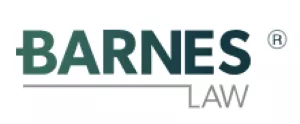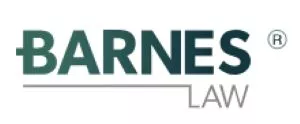- with readers working within the Chemicals and Securities & Investment industries
- within International Law, Technology and Real Estate and Construction topic(s)
We encounter trade marks everywhere - on the products we buy, the services we use, and the brands we trust. A trade mark, whether a name, logo, or design, is more than a badge of identity: it is a legal signal of commercial origin. The strongest marks work instinctively, often without us consciously recognising them as legal rights. For startups, building such brand equity is essential - but so is ensuring it's protected.
Unfortunately, many startups delay registering their trade mark, assuming it's an optional step. This leaves them vulnerable to disputes, copycats, and lost market opportunities.
What Is a Trade Mark?
In simple terms, a trade mark is any sign capable of
distinguishing the goods or services of one undertaking from those
of another. It may consist of words, logos, shapes, colours, or a
combination of these. For the purposes of the UK registration
system, the definition needs to capture the trade mark's
essential function - distinguishing origin- and translate it into
something that can be consistently recorded in a register.
Because businesses often seek protection before launching a product
or service, UK and EU trade mark laws must strike a balance between
functional flexibility and definitional clarity. This ensures trade
marks can be used, protected, and enforced both legally and
commercially from the outset of use.
Not all signs qualify. To be registered, a trade mark must be distinctive and not merely descriptive or generic. While use is not required at filing, the mark must be capable of distinguishing your goods or services from others.
Common Law Protection and the Doctrine of Passing Off
In the UK, it's entirely possible to build and use a brand without registering it as a trade mark. This is what's known as relying on an unregistered trade mark. In practice, this means using a name,logo, or other distinctive brand element in the course of trade without applying for formal registration through the UK Intellectual Property Office(UKIPO). While this can offer some level of legal protection, it comes with significant limitations that are important for startups to understand.
The primary legal remedy for unregistered marks in the UK is a common law action known as passing off.
Passing off is not a catch-all protection for ideas or names- it's a specific legal action that protects the goodwill a business has built with its customers.
To succeed in a passing off claim, a business must prove three elements, known as the classical trinity: (1) that it has goodwill attached to the unregistered mark (i.e. public recognition of the brand), (2) that another party has made a misrepresentation likely to confuse customers, and (3) that this has caused or is likely to cause damage to the business. While this might sound straightforward, in practice it requires detailed evidence and can be particularly challenging for newer businesses still building market recognition.
One of the major limitations of relying on unregistered rights is the burden of proof. Unlike a registered trade mark, where ownership is presumed based on the register, an unregistered right requires you to demonstrate your reputation through invoices, advertisements, social media content, customer engagement, and more. This can be time-consuming and costly. Moreover, your protection is often geographically limited, meaning you may only have rights in the areas where you have actively traded. If you are planning to scale or expand nationally or internationally, that can create serious vulnerabilities.
There are also important commercial limitations. Unregistered rights are generally harder to enforce, especially outside the UK. You cannot record them with customs authorities, which makes preventing counterfeit imports far more difficult.
While unregistered rights can offer a degree of fallback protection through passing off, they are not a substitute for trade mark registration. For start-ups, registering your brand early is usually a modest investment with long-term strategic advantages. It provides certainty, broad protection and enhances your brand's value in the eyes of partners and consumers. It also gives you access to enforcement mechanisms that simply are not available when relying on common law rights alone.
If your brand matters to your business trade mark registration should be viewed not as optional, but as a foundational legal and commercial step.
Comparison With Trade Mark Infringement Actions
Although passing off and trade mark infringement actions share a
common historical origin, they are now legally distinct.
Infringement actions under the Trade Marks Act 1994 are simpler and
more powerful. The owner of a registered mark does not need to show
goodwill or misrepresentation, only that the defendant's sign
is identical or confusingly similar. This provides a clear
advantage in disputes and allows for swift enforcement, including
customs intervention and online takedown actions.
The Practical Limitations of Unregistered Rights
Unlike a registered trade mark, which grants clear and documented rights from the outset, unregistered rights require evidence - often substantial and time-consuming to gather. This includes things like invoices, advertising records, customer testimonials, social media engagement, and market recognition.
In practice, this means:
- Enforcement is harder and more expensive.
- Your rights are narrower in scope.
- There is no presumption of ownership.
- Bad-faith filings are harder to prevent.
For small businesses and start-ups, this uncertainty can create real commercial problems. Investors, partners, and retailers will often expect to see registered trade marks before moving forward with deals or listings.
The Advantages of Trade Mark Registration
Registering your trade mark, particularly with the UK Intellectual Property Office (UKIPO), offers a number of advantages. A registered trade mark is a commercial asset: it can be licensed, assigned, franchised, or used as security. More importantly, it provides clear, nationwide rights, is enforceable against others, and is often expected by investors, retailers, and partners.
Conclusion
While UK law does offer a degree of protection for unregistered
trade marks through passing off, relying solely on these common law
rights is risky, especially as your business grows. Registration
provides certainty, enforceability, and commercial credibility. For
most businesses, securing trade mark protection early on is a smart
investment in the brand's future.
For startups, a registered trade mark can make the difference
between scaling securely or being sidelined by a better-prepared
competitor. If you're unsure whether your brand is registrable,
seeking professional advice early can prevent costly issues
later.
Final Takeaway: Checklist for Startup Founders
To wrap up,here's a practical checklist for early-stage founders navigating trade mark protection:
What to Register:
Business name (trading name)
Logo or brand symbol
Slogan or tagline (if distinctive)
When to Register:
Before or as soon as you go to market
Ideally during brand development or before major publicity
Whereto Register:
UK: via the UK Intellectual Property Office (UKIPO)
International: consider the Madrid Protocol for broader protection
Proactive registration protects your startup's identity, credibility, and long-term commercial growth.
The content of this article is intended to provide a general guide to the subject matter. Specialist advice should be sought about your specific circumstances.


